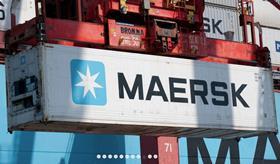
Blockchain will help the shipping industry defend itself against cyberattacks, an American logistics tech company has said, following a successful trial of its shared ledger system.
Marine Transport International believes the logistics industry “will see improved connectivity, efficiency and security thanks to blockchain” - a digitised system to track products from farm to fork; connect the various parts of a supply chain; and allow businesses to easily obtain information on suppliers, how and where produce was grown, and who inspected it.
These comments came as the company released a whitepaper in conjunction with technology startup Agility Sciences, detailing the pilot of its ‘Container Streams’ system.The project, which has connected supplier, shipper, load point, customs and terminal on a shared blockchain ledger, will improve the security and profitability of the logistics industry, the company claimed.
Importantly, it could help the shipping industry resist future cyberattacks like the NotPetya ransomware attack that hit the world's largest container shipping company, Maersk, in June. The Danish logistics giant announced recently that the attack could cost the company as much as $300 million (£232m) in lost revenue.
“In recent months the shipping industry has fallen victim to industrial-scale cyberattacks which have left large shipping lines, such as Maersk, completely paralysed and unable to serve clients,” said Jody Cleworth, CEO of Marine Transport International.
“A blockchain-enabled supply chain is highly resilient to cyberattack – a copy of the essential shipping data is stored on each node on a decentralised network, meaning that even if one node is compromised, the data is safe nevertheless.”
The other main benefits of MTI’s blockchain system, according to Cleworth, are that it streamlines processes, resulting in cost savings as high as 90 per cent; that all the links in a supply chain benefit from automated data flows since the system allows complete interoperability of data sources; and that the interface is “easily adaptable to existing systems”, creating a “a very low barrier to entry”.
The results of the pilot have been verified by scientists at the University of Copenhagen and maritime technology leads at Danish blockchain solutions provider, Blockchain Labs for Open Collaboration (BLOC).
Karim Jabbar, from the Department of Computer Science at the University of Copenhagen, commented: “This pilot demonstrates the great potential for distributed ledger technologies to be used in improving supply chain processes.
“The Container Streams system is unique in the fact that it does not require the complete replacement of existing systems. Instead, MTI’s solution allows complete interoperability with existing legacy infrastructure.
“The logistics industry as a whole can expect better visibility, connectivity and cost savings as a result of distributed ledger adoption.”






No comments yet